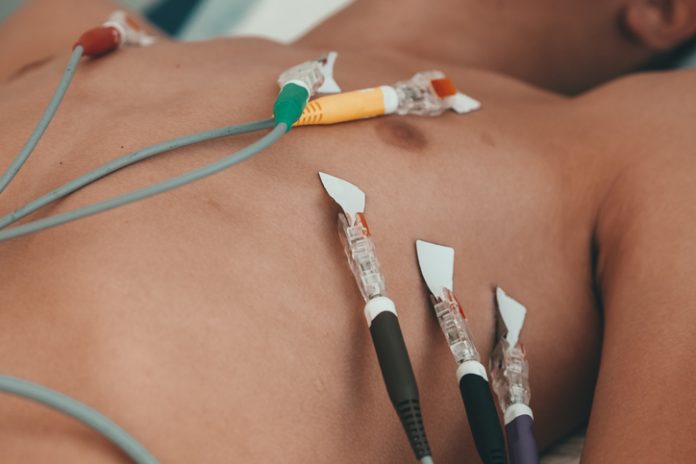The Federal Aviation Administration (FAA) denied that recent changes to its guidelines for pilots’ heart function were related to forced COVID-19 shots.
“The FAA has no evidence of aircraft accidents or incapacitations caused by pilots suffering medical complications associated with COVID-19 vaccines,” an unidentified FAA spokesperson told Reuters and other news organizations, on February 3.
The FAA loosened the standards for mandatory electrocardiograms (EKG) for pilots in updated guidelines, on October 26. The FAA made the change without a public announcement and did not address the reason until months later after Vaccine Safety Research Foundation founder Steve Kirsch publicized it on his Substack page.
Testing Threshold Raised
Pilots were previously required to undergo testing if their electrocardiogram (EKG) recorded a PR interval (a measure of heart activity) of more than 200 milliseconds (ms).
The FAA increased the PR interval below which no further testing is required to 300 ms. A normal PR interval is between 120 and 200ms, according to Healio. Anything above 200 ms is referred to by cardiologists as a prolonged PR interval, and the wider PR range accommodates people who have cardiac injury, according to Kirsch.
The FAA told Reuters it based its decision on medical science.
“[O]ur cardiology consultants provided information that anything under 300ms requires no additional testing and is not a risk for sudden or subtle incapacitation,” said the FAA spokesperson.
‘Move the Goalposts’
Loosening the standards for when to require extra cardiac testing is an unprecedented step, says Thomas Levy, M.D., J.D., a cardiologist and medical advisor to US Freedom Flyers, an advocacy group promoting pilot and travel medical freedom.
“For over 100 years there has been a normal range, and that has been 0.12 second to 0.2 second, or 120 to 200 ms,” Levy said. “The problem here is that out of the blue the FAA, from 2021 to 2022, decided to move the goalposts back and say, ‘Well, we’re now going to say it’s all right to go up to 0.3 seconds,’ almost a doubling of the PR interval.”
The only logical reason for the FAA to make this change, Levy says, is that “they’re seeing substantially more prolonged PR intervals,” and the FAA’s own protocols would force them to “start doing more cardiac testing than they want to do.”
‘Absolute Lunacy’
If the whole purpose of an EKG is to measure the heart’s conduction system, why would you minimize the importance of EKG results showing a change in conduction speed, asks Levy.
“It’s clearly a measure that conduction is slowing. Who is the FAA to decide cardiology standards, rather than the cardiologists?” Levy said.
In fact, the guidelines for pilot safety are “absolute lunacy,” says Levy, because not only have they raised the standard for EKG, the FAA does not conduct stress tests on pilots to measure a pilot’s heart rate and blood pressure.
“What an EKG will tell you is: Did you have a big heart attack in the past? You’ll see a scar,” Levy said. “If you have a completely normal EKG by all criteria, that doesn’t indicate in the slightest that you might not have advanced blockages in your heart getting ready to block off and cause a heart attack.”
Spike Protein Potential Culprit
Levy says that some individuals, particularly athletic ones, can have a prolonged PR interval without underlying disease. Still, a 2009 Harvard Medical School study found serious problems can occur in individuals with PR intervals barely above 0.2 seconds.
These individuals, said Levy, had “twice the chance of a major arrhythmia like atrial fibrillation, three times the chance of having enough blockage in the [electrical] conduction system in their heart to require a pacemaker, and a 50 percent increased chance of death from all causes,” as well as an increased chance of congestive heart failure.
“And then they even added the fact that when the PR interval gets even longer, these risks become more profound and more dramatic,” Levy said.
Both the COVID virus and the vaccines for it can affect cardiac function, says Levy.
“The only thing related to the pandemic that’s going to attack any part of the heart is the spike protein from either having chronic COVID or from the vaccine because they’re both sources of spike protein,” said Levy. “The spike protein causes inflammation, inflammation causes malfunction, and inflammation causes the conduction time to increase.”
Right to Refuse
When President Biden issued executive orders in 2021 requiring large employers and federal contractors to mandate COVID-19 shots, pilots immediately raised objections. but airlines complied, says Twila Brase, president, and co-founder of the Citizens’ Council for Health Freedom.
“The airlines, by not standing by the right of their pilots to refuse the COVID shot, may have exposed these pilots to medical risks they would have otherwise avoided,” said Brase.
In October, an Envoy Air pilot collapsed while carrying 57 passengers to Chicago, and was pronounced dead on arrival, alarming the public, says Brase. “The news of healthy pilots suddenly collapsing from cardiac conditions is a real concern,” said Brase.
Brase says the airlines should have autonomy over pilot health standards, not the federal government.
“If the airlines depend solely on the FAA for health and safety decisions, they are relying on a political organization, which may not be as concerned about the reputation of the airline, or the safety of the planes, its crew, or its customers as the airline likely is,” said Brase. “Ultimately, it would be best for the airline to be in charge of health and safety standards for their pilots, and liable for those decisions.”
Harry Painter (harry@harrypainter.com) writes from Oklahoma.





















